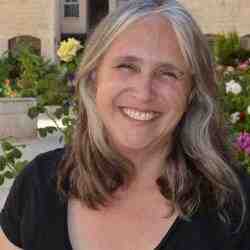Introduction
Mesut established E-bursum to build a democratization and digitization movement aiming to make student scholarships and loans more transparent, fair and impactful in Turkey. Mesut is turning a dysfunctional financial instrument in education into an empowerment tool and fundamentally changing the ways scholarship givers and recipients interact with one-another.
The New Idea
Benefiting from the tools of the new era, Mesut is using technological opportunities to move the scholarship sector to the online platforms for a more democratic and accessible system. Seeing the repetitive processes of application and evaluation in the scholarship sector, Mesut is dedicated to replacing that repetition with computer science and to use the freed up human resource for activating young people as future leaders. Synchronized with central state database, E-bursum’s online platform enables students to see all the opportunities at once and apply for the relevant scholarships with one click, and the scholarship givers to create more objective and efficient evaluation processes.
Besides activating the online tools for students’ service, Mesut is also working across offline platforms to shift the scholarship conversation around the country. Characterized by an unhealthy concentration of funds and nepotism, the scholarship sector could not be analyzed throughout its existence. Collecting and analyzing the data around the sector, Mesut, for the first time in Turkey, is presenting comprehensive research results to the scholarship ecosystem. By identifying the sufficient amount of scholarship needed in different parts of the country or the average scholarship received by one student, Mesut is creating the sectoral codes of conduct from scratch.
Combination of online tools and knowledge production marks E-bursum as the new umbrella organization of youth financing in Turkey. Differentiating itself from others in the field by being free of charge for the students and offering them personal empowerment opportunities, E-bursum remains as the one and only student-centered system for youth.
The Problem
Higher education in Turkey can be considered as a unique system for many of its aspects. Although there are many state colleges offering free education opportunities, these colleges are mostly occupied with upper middle class youth who had the opportunity to move to that city or to sustain their lives around the college area. Not paying school fees is insufficient for most of the students to continue their higher education for living costs are too high for an average income family to cover.
There are 15 million high school and university students currently studying in Turkey. Of these, 1.5 million of them actively search for scholarships every year. Due to insufficient financial support offered by state institutions, giving scholarships has become a big sector with growing numbers of students. The sector is characterized by an unhealthy concentration of scholarships and nepotism, where scholarship givers are not able to reach all eligible applicants and thus give their support to only those who are close to them. This creates uneven and unfair distribution of funds, some students benefiting from multiple scholarships and having more support than they need, while others lack any access.
Even when a student received scholarship, they remained as disempowered individuals in the system who need financial support for the rest of their educational track. Most of them met with financial instruments through scholarships, yet they did not know how to best use that money for their self-improvement and wellbeing in the long run.
Being the powerful hand in the conversation, the scholarship givers -who are mostly NGOs that fundraise for those scholarships- lost the sense of accountability and transparency over time. Keeping students on hold for 3-4 months for the evaluation process, they have never revealed the selection criteria or the committee to the public. Minding their fundraising goals, they tended to give scholarships to the successful students only for the sake of PR activities. Not paying attention to the amount needed in different parts of the country, most of the donors left urban students in the vicious cycle of poverty for not being able to pay the basic accommodation and food costs in the big cities.
Giving scholarship has remained as a valued philanthropic activity over the years in Turkey. Having sustained itself for more than 50 years with old school funding mechanism, the sector is now headed to the way of democratization and easiness for everyone involved. As in many fields, this sector shall only be democratized with the help of technological improvements, the radical transparency over cash flow and the openly presented knowledge sources.
The Strategy
Mesut’s work comes in three pillars of change: The individual, the institutional and the cultural/systemic.
First, E-bursum changes the rules of scholarship application and evaluation for everyone involved. Thanks to the online marketplace where the students can log in with their ID number, all the information shared by a student is verified by the related state institution and shared only with the funder the student has shared an application form. Unlike the old system where the funder organizations’ employees had to evaluate the applicants over a bunch of hard copy application forms and bureaucratic documents, they are now defining the objective criteria for their applicants which are used by E-bursum’s online evaluation system to short-list the best fitting candidates.
Thanks to the time freed up with the online tools, the scholarship givers are now able to channel their resources on other activities. E-bursum advises all funders to start mentorship programs between the donors of the NGO and the scholarship receivers in order to make sure the relationship is not only about monetary value, but it is also something that can provide the student with personal development opportunities. The online platform also offers tools for online calls and mentoring sessions. By activating the mentorship addition for every funder in Turkey, Mesut envisions a world where university students have access to moral support from professionals that are not in their close friend/family circle. To date, 150 students have received this support from various organizations.
Observing the students’ spending behavior via quantitative research, Mesut also realized the need for financial literacy courses in Turkey where the young people do not interact with financial tools until the age of 18. In partnership with Visa Turkey (the well-known credit card company), Mesut offered online trainings to all students registered in their system. These trainings informed youngsters about a variety of topics including expense prioritization and saving tricks. In total, 10,000 students attended in the course via the online platform of E-bursum.
To date, 200,000 students are registered in the online system and 4,000 scholarships have been distributed through E-bursum, amounting to 13 million Turkish liras ($ 3 million). Five leading education foundations in the system totals the 10% of the full market in terms of funds. Aware of this great source of knowledge in their hands, E-bursum team has recently published the first analysis report on the scholarship sector of Turkey. By creating knowledge pieces such as this, the team is aiming to attract public attention to the unfair order of this long standing system. Applauded by the NGOs themselves, the report revealed the top three universities in Istanbul receiving more than half of the scholarships available in the whole sector.
Mesut’s future plans for E-Bursum are far-reaching, including the activation of a smart network of donors, mentors, and trainers to improve the overall prosperity of students. As the platform continues to grow, Mesut also plans to develop a crowd sourcing mechanism for students that will enable individuals to fundraise for their own passions - be it personal development, continuing their education abroad or starting their own start-up.
The Person
Mesut grew up in a large, well-to-do family in Eastern Turkey. When a devastating earthquake hit their city and his father’s business went into bankruptcy in 2011, Mesut came across financial hardship for the first time in his life. Having spent his youth years away from home, in boarding schools, Mesut defines his first year at the university as the hardest one of his life due to many other problems following the earthquake incidence.
Mesut spent his first year at university searching for scholarships, loans, and flexible job opportunities while observing many others like him dropping out of school or ending up homeless. Being one of the members of the city council at the age of 18, Mesut tried his best to persuade municipalities to build living centers for the homeless students. After failing in this exert, he started to contemplate about the ways of building a democratic and transparent system that triggers citizens to work for the overall wealth of the youngsters.
A computer engineer by education, Mesut started to design an online platform to ease the processes of scholarship applications and evaluations by the age of 20. After the launch of the beta version of E-bursum, Mesut kept innovating and improving his platform, while also noticing other challenges youth face because of financial difficulties in Turkey. He dedicated himself to solving these problems one by one by using the opportunities of 21st century, especially the internet and new technologies.




